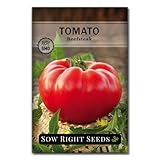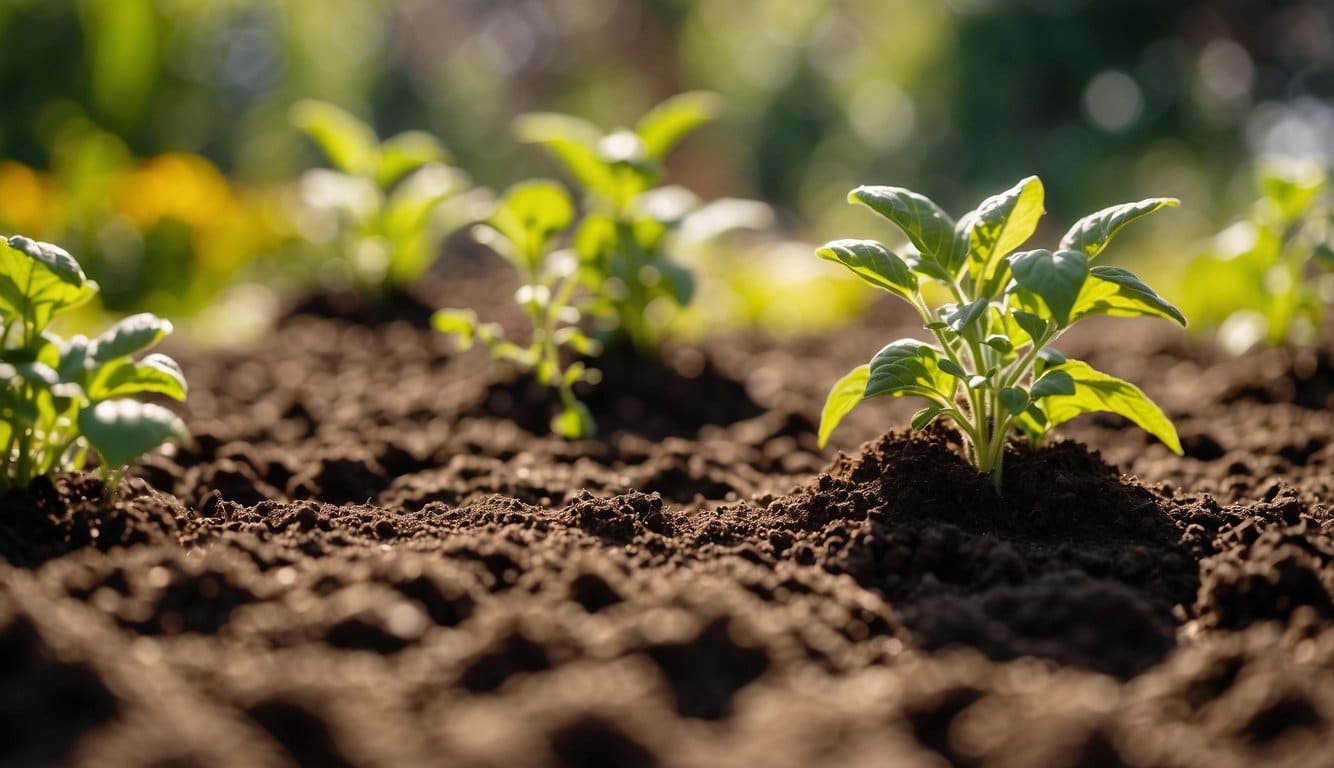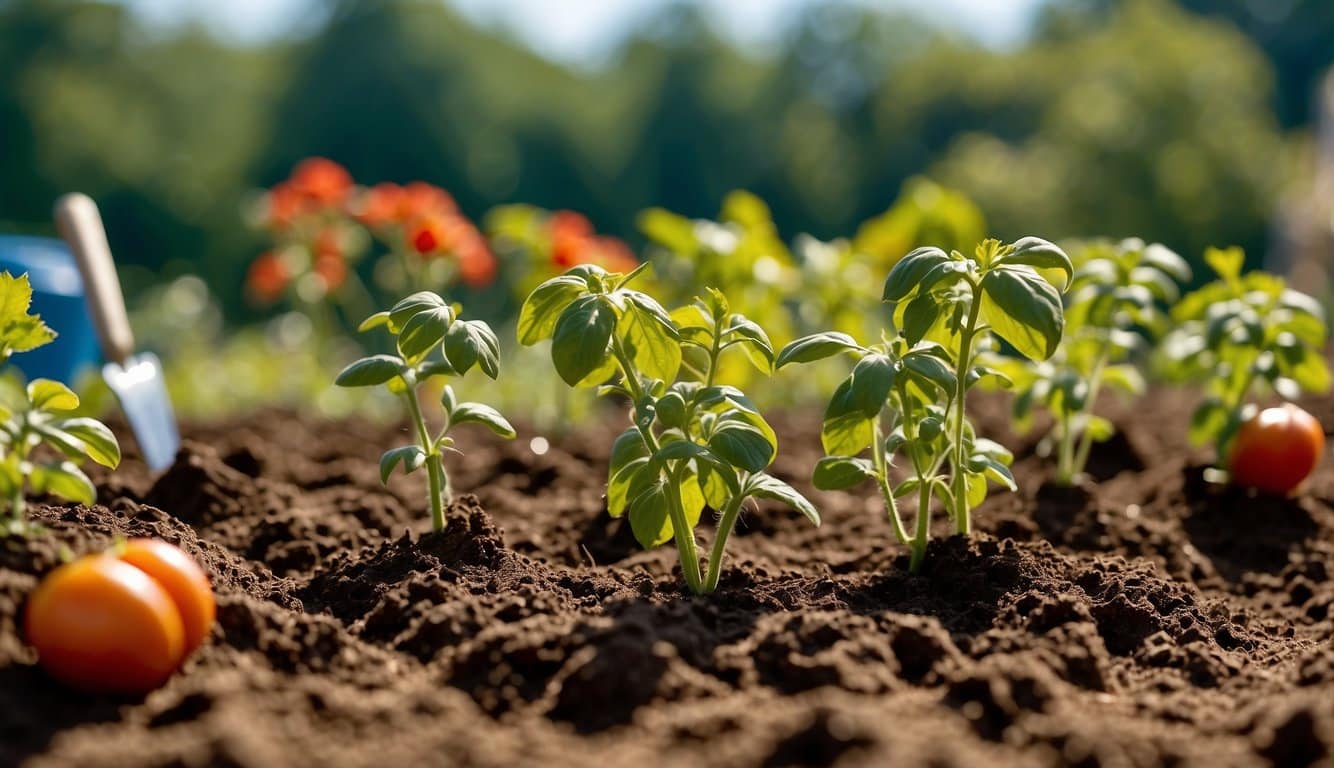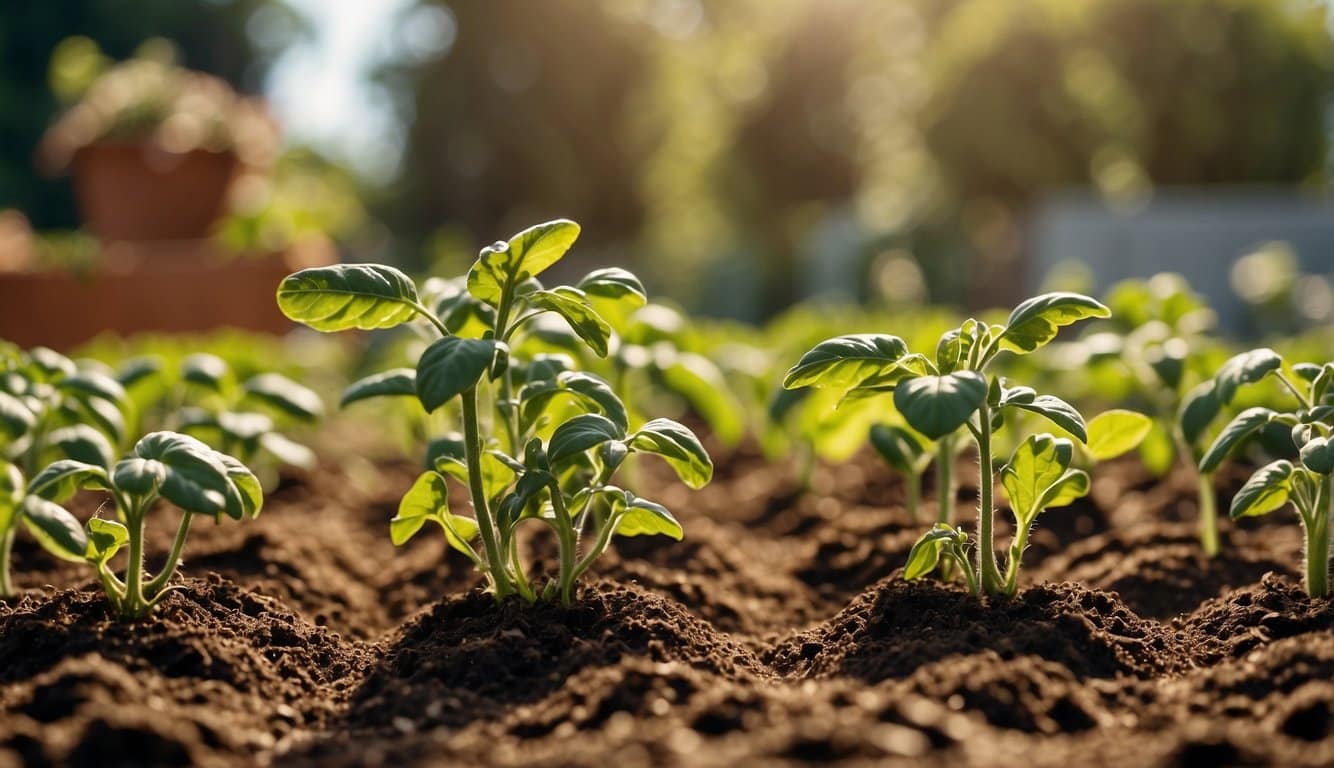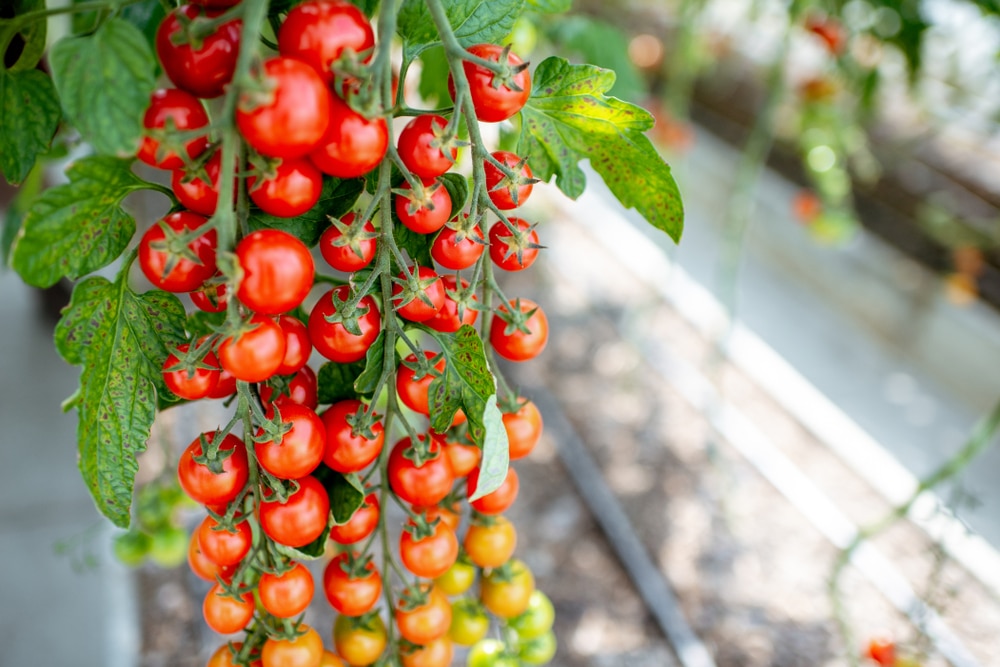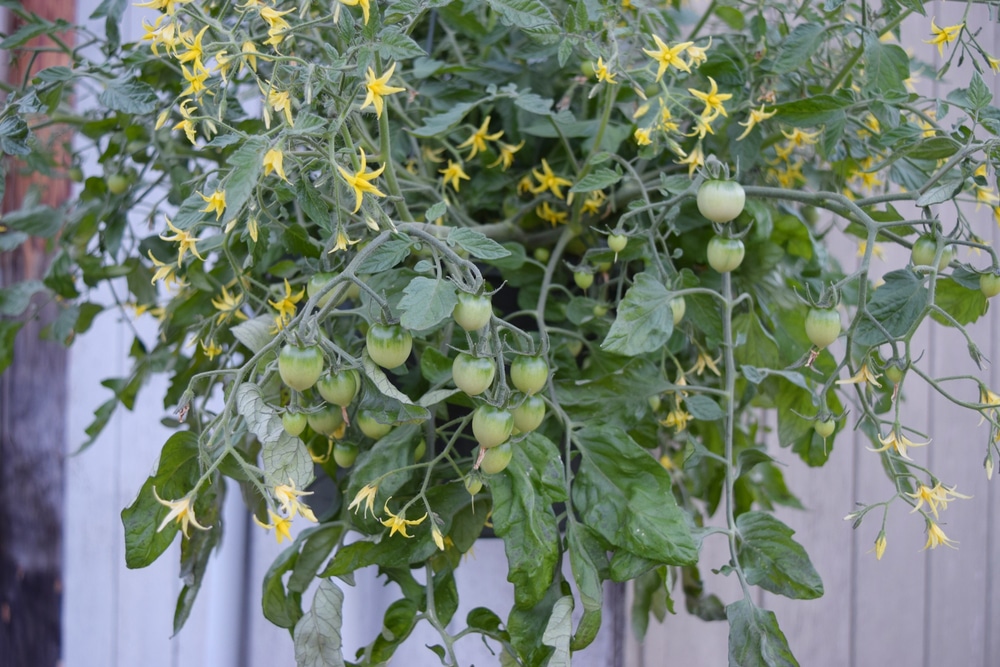| Question | What’s the best time of year to plant tomatoes in New Jersey? |
|---|---|
| Answer | After the last frost, typically late April to mid-May. |
| More Info |
|
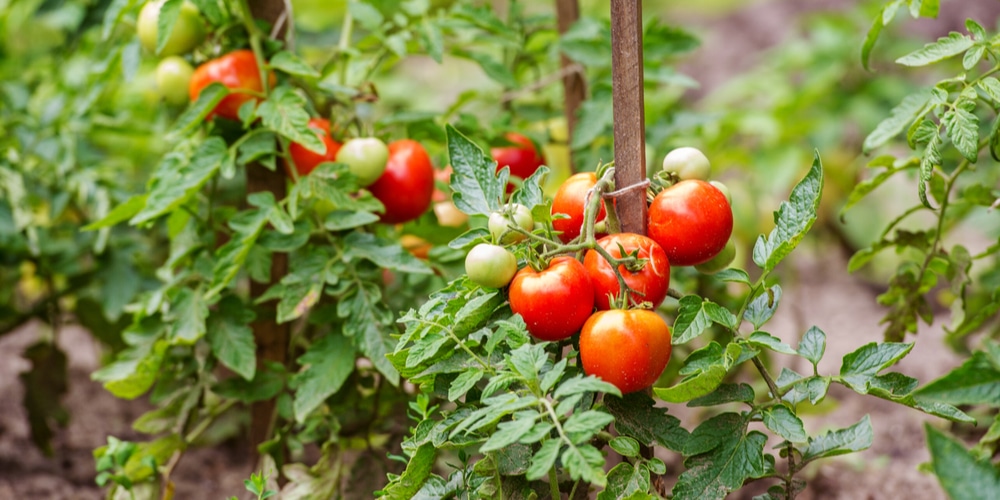
In New Jersey, the ideal time to plant tomatoes is after the risk of frost has passed, which is generally from late April to mid-May, depending on the specific area within the state. Given New Jersey’s climate, starting tomato seeds indoors about 6-8 weeks before the planned outdoor planting date is a good practice.
This approach allows the seedlings to develop in a controlled environment before being transplanted outside. Selecting varieties that are well-suited to New Jersey’s seasonal conditions, including early-maturing and disease-resistant types, can help ensure a successful and productive tomato harvest.
The New Jersey Climate + Tomato Planting
When it comes to planting tomatoes in New Jersey, it is important to take into account the climate of the region. New Jersey has a humid subtropical climate, which means that the summers are hot and humid, while the winters are cold and snowy. The state is also prone to thunderstorms and hurricanes, which can cause damage to crops.
The ideal temperature for tomato growth is between 70 and 80 degrees Fahrenheit. Since New Jersey’s summers are hot and humid, it is important to plant tomatoes during the cooler months. The best time to plant tomatoes in New Jersey is after the last frost has passed, which should be around April.
It is also important to note that climate and weather patterns play a crucial role in determining the planting season. New Jersey usually experiences its first frost in October and last frost in April or May. The growing season is generally approximately 180 days.
To help determine the best time to plant tomatoes in New Jersey, here is a breakdown of some of the bigger regions in New Jersey and when to start planting tomatoes based on which area you might live in or closest to:
- In Central Jersey, the optimal time to plant tomatoes is typically from mid-April to early May.
- In Southern Jersey, the best time to plant tomatoes is in early May.
- In Northern Jersey, the optimal time to plant tomatoes is typically from late April to early May.
It is important to note that these dates are estimates and may vary depending on the weather conditions of the year. It is always best to monitor the weather and soil conditions before planting tomatoes.
When to Plant Tomatoes in New Jersey
Tomatoes are a warm-season crop that grows best in New Jersey during the summer months. The best time to plant tomatoes in New Jersey is after the last frost has passed. The last frost date varies depending on the region of New Jersey, but it usually falls between late April and early May.
Starting Seeds Indoors
To get a head start on the growing season, gardeners in New Jersey can start tomato seeds indoors six to eight weeks before the last frost date. This allows the seedlings to grow strong and healthy before being transplanted outdoors.
To start seeds indoors, gardeners can use seed trays or pots filled with a seed-starting mix. They should plant the seeds about ¼ inch deep and keep them moist and warm until they germinate.
Transplanting Seedlings Outdoors
Once the last frost has passed, gardeners can transplant their tomato seedlings outdoors. They should choose a sunny location with well-drained soil and plenty of room for the plants to grow.
Tomato plants should be spaced about 2-3 feet apart to allow for adequate air circulation. Gardeners should also stake or cage their tomato plants to keep them upright and prevent damage from wind or heavy fruit.
Regional Considerations for Planting Tomatoes in New Jersey
When it comes to planting tomatoes in New Jersey, timing is everything. The state is divided into three regions: Northern, Central, and Southern New Jersey. Each region has its own unique climate and soil conditions, which can affect the best time to plant tomatoes.
Northern New Jersey
Northern New Jersey is known for its colder climate, making it important for gardeners to wait for the last frost before planting tomatoes. The last average frost date in this region is around April 15th.
Gardeners should start their tomato seeds indoors 6-8 weeks before the last frost date. This means that seeds should be started in late February or early March.
Central New Jersey
Central New Jersey has a slightly milder climate compared to Northern New Jersey. The last average frost date in this region is around April 10th.
Gardeners should start their tomato seeds indoors 4-6 weeks before the last frost date. This means that seeds should be started in mid-March.
Southern New Jersey
Southern New Jersey has a warmer climate compared to the other regions. The last average frost date in this region is around April 5th.
Gardeners should start their tomato seeds indoors 4-6 weeks before the last frost date. This means that seeds should be started in early March.
It is important to note that these dates are estimates and can vary depending on the weather conditions in a given year. Gardeners should always pay close attention to the weather forecast and adjust their planting schedule accordingly. Additionally, choosing the right tomato variety can also make a difference in the success of the harvest.
Soil Preparation for Tomato Planting
Before planting tomatoes in New Jersey, it is important to prepare the soil to ensure that the plants will grow healthy and strong. The following are some tips for soil preparation:
- Test the soil: Tomato plants thrive in well-drained, nutrient-rich soil. Test the soil before planting to determine its pH levels and nutrient content. This will help you determine if any amendments are needed to improve the soil quality.
- Add compost or manure: Adding compost or manure to the soil can help improve its nutrient content. These organic materials can also help improve soil structure and water retention.
- Till the soil: Tilling the soil can help break up any compacted soil and create a loose, aerated environment for the roots to grow. However, be careful not to over-till, as this can damage the soil structure.
- Mulch the soil: Mulching the soil around the tomato plants can help retain moisture and prevent weeds from growing. Organic materials such as straw, grass clippings, or shredded leaves can be used for mulch.
Care and Maintenance for Tomato Plants
Tomato plants require proper care and maintenance to grow healthy and produce a bountiful harvest. In this section, we will discuss two important aspects of tomato plant care: watering and fertilizing, and staking and pruning.
Watering and Fertilizing
Tomato plants require consistent watering to ensure that they receive the proper amount of moisture.
It is recommended to water tomato plants deeply once a week, rather than giving them small amounts of water daily. This encourages the roots to grow deeper, making the plant more drought-resistant.
In addition to consistent watering, tomato plants require fertilization.
It is best to fertilize tomato plants with a balanced fertilizer, such as a 10-10-10 or 20-20-20 mix.
Fertilize tomato plants once a week during the growing season, and reduce the frequency as the season progresses.
Staking and Pruning
Tomato plants can grow tall and bushy, making them difficult to manage. Staking and pruning can help keep the plant upright and promote healthy growth.
Staking involves tying the main stem of the tomato plant to a stake or trellis, providing support as the plant grows taller.
Pruning involves removing the suckers, or small shoots that grow between the main stem and the branches, to promote bigger and healthier fruit.
Frequently Asked Questions
What is the ideal time frame to start tomato seedlings indoors in New Jersey?
The ideal time frame to start tomato seedlings indoors in New Jersey is around six weeks before the last frost date. This is usually around late March or early April. This gives the seedlings enough time to grow and develop before being transplanted outside.
How late can tomatoes be planted in New Jersey’s growing season?
Tomatoes can be planted in New Jersey’s growing season until mid-July. However, it is recommended to plant them earlier in the season to ensure a bountiful harvest before the first frost.
What are the recommended tomato varieties for New Jersey’s climate?
There are several tomato varieties that are recommended for New Jersey’s climate, including Rutgers, Ramapo, and Jet Star. These varieties are known for their ability to grow well in New Jersey’s soil and climate.
When is the risk of frost typically past for safely planting tomatoes outdoors in NJ?
The risk of frost is typically past by mid-May in most parts of New Jersey. However, it is important to keep an eye on weather forecasts and soil temperatures before planting tomatoes outdoors.
How should I acclimate tomato plants to outdoor conditions in New Jersey?
Tomato plants should be gradually acclimated to outdoor conditions in New Jersey. This can be done by placing them outside for a few hours each day and gradually increasing the amount of time they spend outside. This helps the plants adjust to the outdoor temperature and sunlight.
What are the soil preparation guidelines for planting tomatoes in NJ?
The soil for planting tomatoes in NJ should be well-draining and rich in organic matter.
It is recommended to add compost or aged manure to the soil before planting.
The soil should also have a pH level between 6.0 and 6.8.
Last update on 2025-04-26 / Affiliate links / Images from Amazon Product Advertising API
